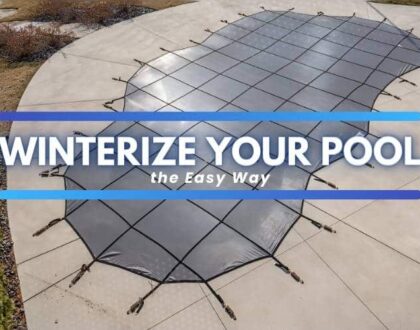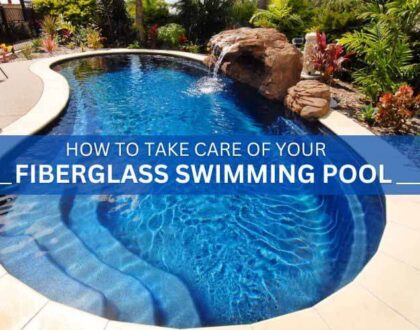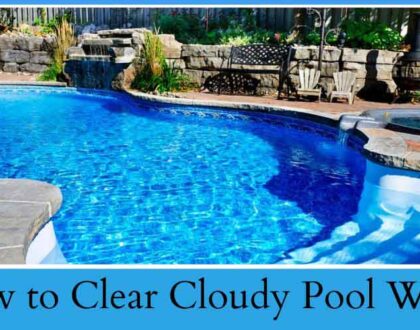Best Ways to Sanitize your Swimming Pool
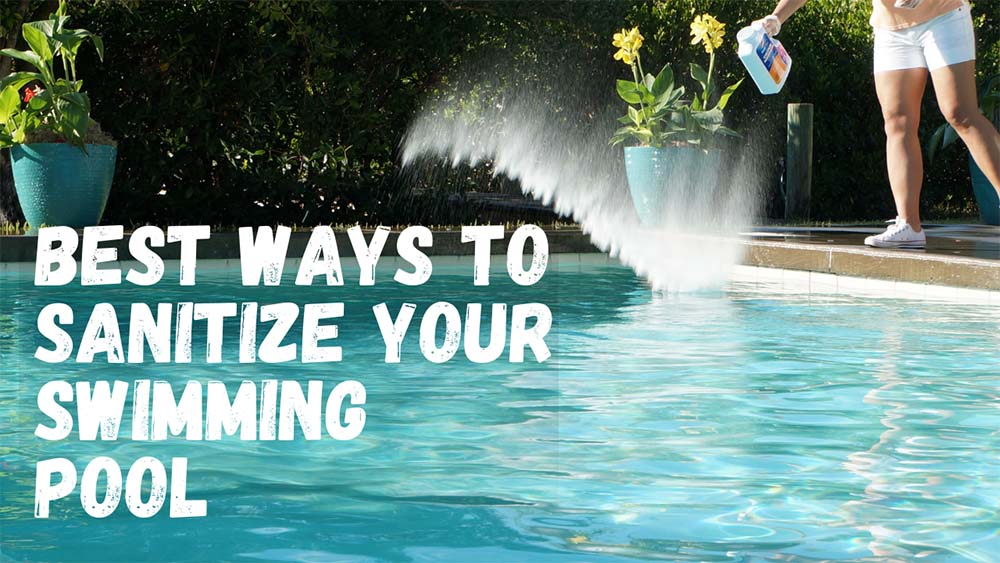
Unhealthy pools are no less than a nightmare. All the invisible pathogens and parasites make the pool unsafe for swimming. But with the proper maintenance of the swimming pool, you can ensure pool water is hygienic and safe for swimming. Don’t worry! Sanitizing the pool is easy. Here are some of the best ways to sanitize your swimming pool.
But first, what is a Pool Sanitizer? Why is it important?
Sanitization is the process of keeping the pool water clean and healthy so you can enjoy your swimming without having to worry about any adverse effects on health.
Sanitizing the swimming pool helps remove harmful pathogens and germs from the pool, which potentially causes illness. An unclean pool can be the breeding ground for many types of infections and water-borne diseases. Therefore, sanitization is crucial. Swimming pool sanitization also eliminates algae from the pool.
Methods of Swimming Pool Sanitization
There are plenty of sanitization methods, but Chlorine, Saltwater systems, and Pool Ionizers are some of the most common and effective sanitizers. Let’s have a deeper look!
Pool Chlorine

Pool chlorine is perhaps the best way to sanitize the pool. It is also known as Hypochlorous Acid, which has excellent pathogens, bacteria, and viruses killing properties. It works effectively to clear the pool water and make it safer to enjoy swimming. It also keeps the algae at bay, so you can expect better pool water.
How do you use chlorine?
Pool chlorine comes in various forms such as tablets, powder (granular), liquid, and gas form. Here’s how to use them:
Pool chlorine tablets
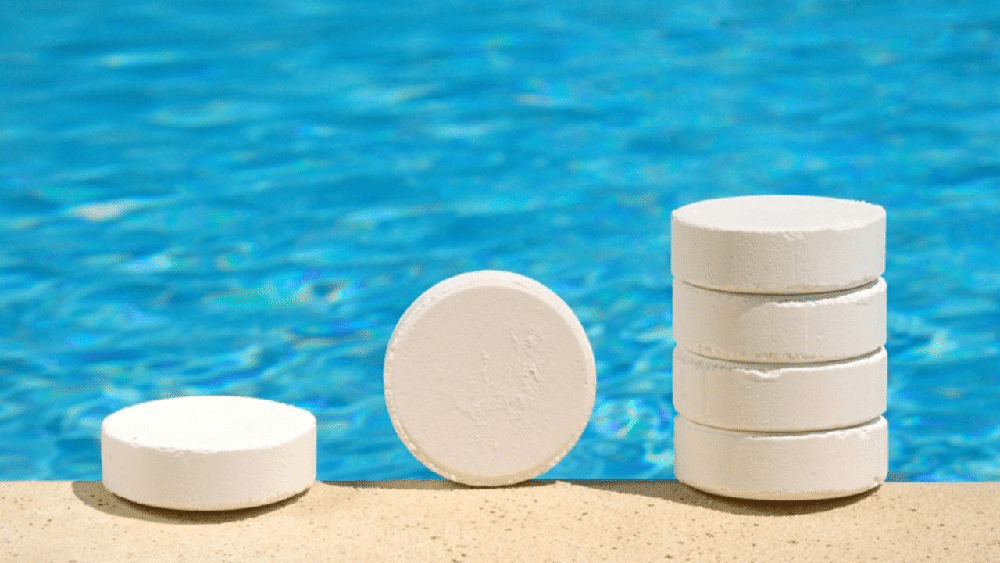
Chlorine tablets dissolve in your pool’s water. It usually comes in different sizes (normally 3” and 1”). You have to place it in the skimmer basket, or you can dispense it with a floating chlorine dispenser. In case you have an automatic chlorinator installed, you have to use that to dissolve the tablets.
Pool chlorine powder (granular chlorine)
Chlorine powder can be added directly to the pool water depending upon the results of the chemical tests. Granular chlorine works much faster than tablets.
Pool chlorine liquid

Liquid chlorine is added directly to the pool water. It is a quick way to sanitize the pool. But, liquid chlorine generally doesn’t last long on the shelf, so you have to use it soon after buying it. Chlorine granules and tablets usually have a much longer shelf life.
Pool chlorine gas

It is pure chlorine that is used to sanitize the swimming pools. It is usually used by certified professionals and pool contractors only, as it may pose a serious threat if mishandled.
Saltwater Chlorinators
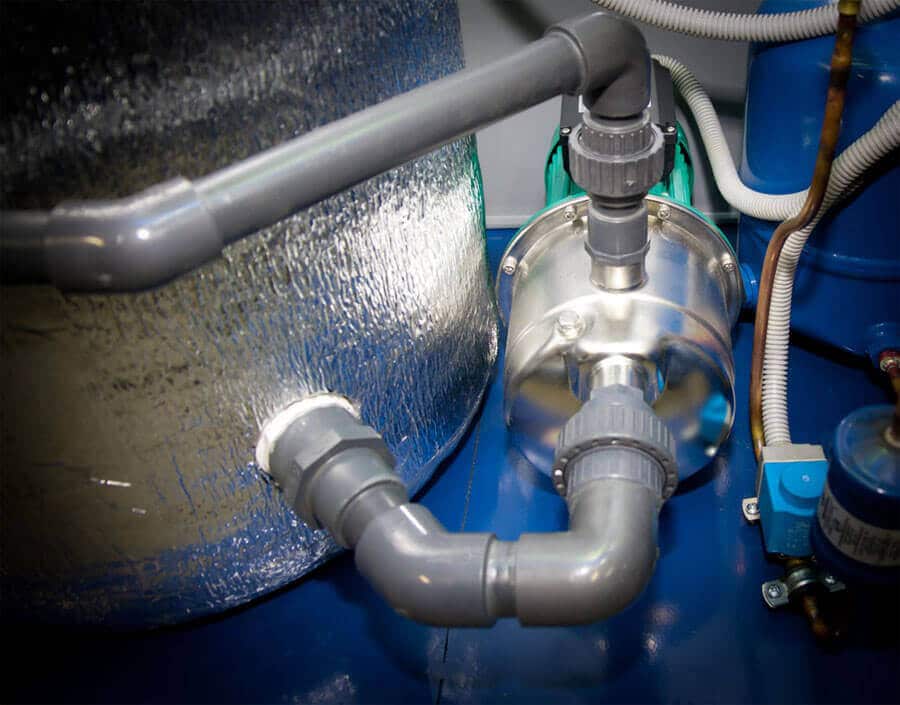
Saltwater pool systems have an inbuilt chlorination system that converts salt into chlorine with the help of a generator. It is quite simple to use as you just have to put some salt into the pool, and the generator will do the rest of the work. Saltwater systems work well with most types of pools but have limitations with pools such as vinyl liner. So, it is worth checking with your pool builder whether it is a good sanitization solution for your pool.
Pool Ionisers
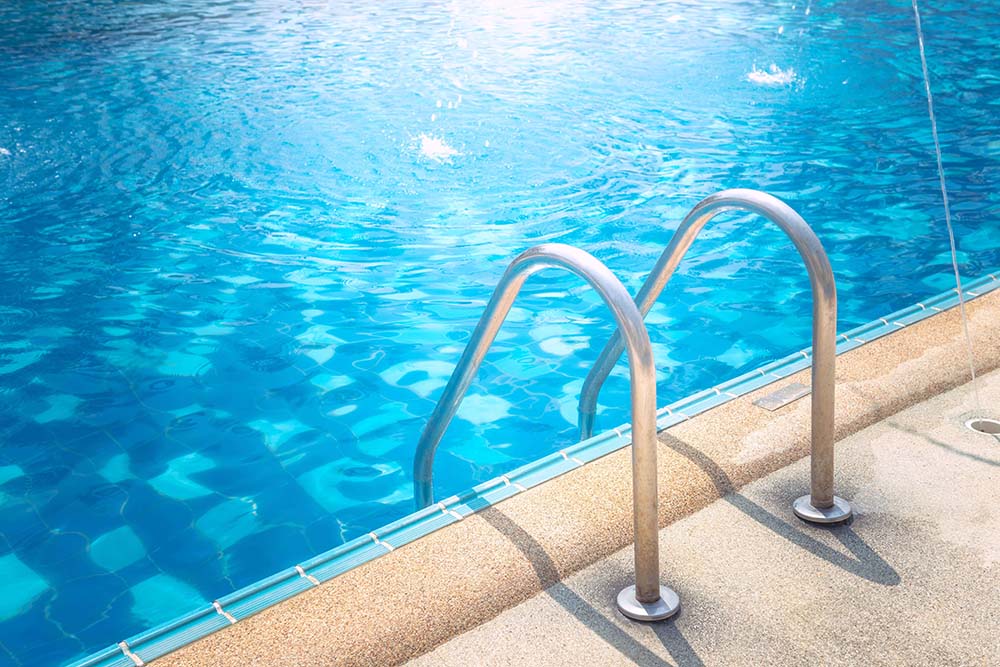
It uses copper and silver ions to remove bacteria and algae from the water. Pool ionizers are highly effective, as it releases positively charged copper and silver ions into the pool, which further eliminates algae and bacteria. Although ionization is a proven method to destroy bacteria, pathogens, and viruses, it’s often not as effective as chlorine.
Pool Chlorine Pros and Cons
Clear your doubts and questions before using chlorine for your pool.
Pros
• Removes pathogens and algae effectively
• Easily available
• Plenty of choices (tablets, granules, liquid, gas)
• Destroys contaminants within water
• Oxidation
• Works for both indoor as well as outdoor pools
• Is compatible with all types of pools
Cons
• Often leaves a pungent smell. So if you are smell sensitive this can cause some problems
• It can cause some kind of irritation to the eye or skin.
• Salt chlorine systems can impact or corrode the vinyl liner and concrete pools due to concentration of chlorine.
Before you decide on the right sanitization method, make sure you keep in mind your pool condition and maintenance requirements. It is advisable to seek advice from experts because every sanitization method has some expenses and requirements to be met. You can spend some time researching or hiring a professional to make sanitization faster. Contact us if you are looking for an experienced professional for your pool.
We are known for our excellent pool services and for building world-class pools across the region. Different pools have different sanitization requirements, we know it, and that’s why we serve customized services. Get your pool ready for a refreshing dip today!



